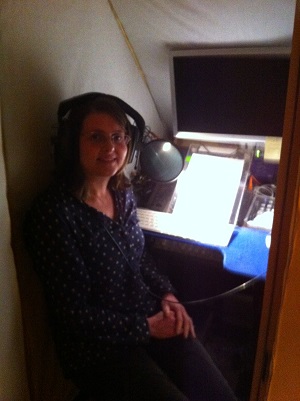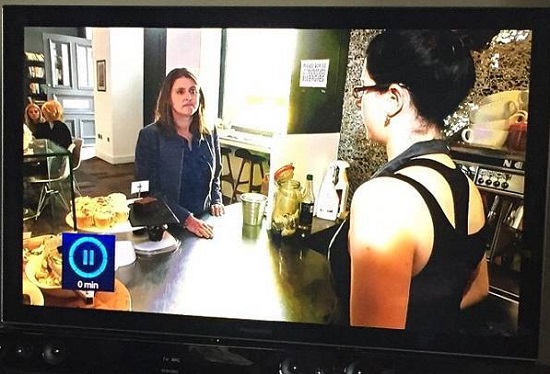Today saw the news the the FSA have announced new allergen labelling regulations for restaurants.
You can read the article in ‘Food outlets should list all ingredients’ on the BBC website here.
Following on from the tragic death in 2016 of sesame allergic Natasha Ednan-Laperouse after eating a take-out sandwich containing unlabelled sesame, these new regulations are far overdue.

I wrote about this last year in a blog post entitled, ‘Why I will never eat at Pret…’.
Considering that Natasha died in 2016 its disappointing that we are still talking about what laws need to change. These new regulations should have been in place from the start, but I am pleased that the FSA have taken a strong stance.
Food hospitality establishments will now need to label all ingredients and highlight any allergens, which help the allergy community immensely.
Will food establishments struggle with the new regulations?
The FSA fears this may be a struggle for some establishments, and I’m sure it will, but surely it would be far worse if more people with allergies were to die from allergic reactions. This is the ultimate failure. And in most cases the mistake WAS AVOIDABLE if there had been dialogue.
So are these cafes etc. now expected to have labels for every food item they make? How easy will that be for them? The Food Hospitality regulating body feels that it the case of very small outlets it will be impossible and the better option would be for the customer to ask staff.
But how are staff expected to respond unless this information is available to them in writing.
I feel that any restaurant or food service outlet that is unsure should err on the side of caution and say they cannot guaranteed traces of allergens.
Certainly at restaurants I have been turned away on lots of occasions. This can be embarrassing and inconvenient but I’m cool with that. I’d rather be told the truth. For whatever reason. If I’m not welcome somewhere I would much rather know! It’s the same with these companies like Pret who prepare food on the premises for customers to take away. How do they ensure that their staff and customers have the information they need about ingredients and allergens?
I know others disagree with me on this, but having been admitted to A&E after repeated mistakes that stem from staff not understanding even what allergens are, how serious a reaction can be, thinking small amounts are ok… you name it. Despite my repeated checking, phoning and asking for assurances, mistakes still happen. I think this happens due to a lack of understanding, processes and training.
Don’t say something is OK if you are not 100% sure that it is!
There are plenty of cafes, restaurants etc. that do ‘get’ allergies and understand the processes needed. They are willing and happy to cater for allergic diners. Thank you to these places. You make a little ray of sunshine in what can be a very scary world for people with allergies.
And to all the others. That’s OK too. Just make it very clear that you do have safe options.
The worst outcome would be for the labelling to be done incorrectly because people haven’t understood what’s required.
If you think of supermarkets, they have departments dedicated to labelling and they still make mistakes and recall products. How is the cafe owner from the local deli going to handle this?
We have a long way to go still and lots of discussion needed.
What’s missing in these new regulations?
These new allergen labelling regulations are great but the part that’s missing is staff training. It’s all very well passing a law like this and it’s a great step forward, but the restaurant industry typically has a high turnover of staff, these staff get varying degrees of training and there are limited laws covering what allergen training they get. Do the staff making food understand allergens fully?
Hygiene and safety training touches on the storage and handling of allergens but not all staff undergo this training,
For many English is not their first language so there is another communication element here. Do they even understand what you are asking them?
It will take time for these new regulations to be debated and then if they are agreed, for them to come into place, probably years!
What do allergic diners want?
- Tell us what’s in your food – We just want to be told what is in any sandwich or meal. That’s all.
- We only want a safe meal – We don’t need the whole menu to be overhauled. It could mean that nothing on a menu is safe. Or it could mean that some simple process are put into place to ensure a few items are suitable for people with allergies.
- There are more than 14 allergens – Remember also that some people are allergic to foods outside the 14 allergens that are required to be listed. These diners will be really pleased that all ingredients now need to be labelled. If you get anaphylaxis to pea for instance, it’s a minefield as this ingredient appears in many and some very unexpected foods.
- Honesty – We want staff to be honest – it is OK to say they do not know what allergens are present. It is not OK to lie, or guess, or assume. If you are unsure, say so. If you do not have the ingredients, be honest about this.
- Just say no – We would rather be told we cannot be served than be served a meal that makes us ill and means a terrifying trip to A&E. No one wants that!
- Ask us questions – We want staff to ask us questions. I feel most safe when staff ask me things that show they are clarifying the situation. For instance, an intolerance to dairy can be treated differently to my severe allergy.
- Be kind – And finally we want staff to show kindness. We are humans with feelings. Please don’t roll your eyes or sigh with frustration. For some of us it has taken a huge effort just to go out and try to order food.
I always tell staff I carry adrenaline and that my allergy is very serious. Despite this and always checking over and over again, I have still been served food that has made me ill.
Most recently being served a ‘dairy free meal’ which was anything but. I got ill very quickly, had to be taken to A&E and spend the night in intensive care. A truly terrifying experience which was completely avoidable had that waitress, chef, etc. understood. Clearly there was some kind of massive miscommunication or mistake in this case, but it wasn’t just a trace, it was the ingredient being included as milk, cream, cheese… you name it. I couldn’t have been given a more inappropriate meal if they’d tried!
The avoidance and handbag picnics
For myself, I tend to avoid eating out if I can. This means I opt to exclude myself so I can keep myself safe. Alternatively I will always have a backup option in my bags so that I won’t go hungry.
But I do have places that I trust, and with careful planning and checking, I can eat out!
Some responsibility must be taken by the allergic person
I must stress, I do not think that this all the responsibility of the food hospitality industry. I have a serious, life affecting condition and as such I need to behave sensibly and live my life in a way that keeps me safe.
I would never buy anything without full ingredients.
I would never buy anything without checking that it was safe. For me, that means avoiding the four foods that trigger a serious reaction for me e.g. nuts, dairy, soya and wheat.
For me this means I can rarely eat the foods that would come under these new regulations. Sandwiches are not easy for me to buy from food on the go outlets.
You will usually find me in the local supermarket while friends visit Pret or similar. The only thing suitable for me is an apple and packet of crisps!
Luckily I love apples and crisps!
This is just the start…
I am pleased about these regulations but we still have a long way to go. It will still take a long time for them to be agreed and put into place. It will then take food service establishments time to understand and implement any necessary changes.
If you think about disabled access, this is now seen as the norm. I can remember not so long ago when this was not the case and it is now expected that all public places, including restaurants should have disabled access and facilities.
Also vegetarian and vegan choices. When people first started to go veggie it was very hard to order anything suitable in a pub, restaurant or cafe. It was unusual. It was weird. People didn’t understand but now it’s perfectly acceptable and most places have a choice of vegetarian options.
The smoking ban could also be used as an example. There was a outcry at first that it would never work, but it did.
It will take time. It will take years. It will take more mistakes, sadly…
What are your thoughts? Are these regulations a good thing? Are the right choice by the FSA? Will they be bad for hospitality businesses? Will they work? How will they work? I have so many questions…
My advice to anyone with allergies is not to eat anything if you haven’t seen the ingredients and understood fully what the risk are. Your life is priceless.












Excellent overview Ruth, thank you. I have to say I’m with you and I just don’t take the risk – and I am not even anaphylactic, thank goodness, but the prospect of severe pain for 10 days for a ‘simple’ intolerance does rather put you off taking risks, so goodness knows how you must feel! Funnily enough, I have only just started going out to cafes etc again (take my own coffee in a flask) and went into our local beach cafe this morning. Chatting to them, they invited me to come with P for an evening whenever I like and feel free to bring my own food without feeling ‘different’ or left out. I thought that was lovely. Re the labelling, I do wonder how the heck they will cope in small places like that but, as you say, over time I hope it will be smoking/seatbelts all over again and many of us then will get at least some of our social lives back!
Oh that’s lovely, letting you take your own food. I should ask to do that more often. And thanks for the comment. I went on BBC 3 Counties Radio and 5 Live Drive yesterday which was really good fun. I think the hospitality industry are not happy about the strong stance the FSA have taken. But I just don’t understand, people die, surely we must all do everything we can to avoid this ever happening again. That means all of us, customers and food service establishments. And the labelling could be a nightmare for them… but they SHOULD know what goes into their food! AT the end of the day, all we want to know as allergic diners is what’s in the food… and what allergens might be present or at risk of cross contamination. I think we’ll end up with no-go place, which cannot cater and that’s fine. There will be plenty who can. As long as we all know where we stand.
Agreed. I don’t care if some can’t or won’t do it as long as we know!!
Great article. Think it makes all the important points, many of which get missed in general discussion.
I do worry that there is a “Just Eat” trend to not having to talk to anyone about your food, just point and click. I really don’t want people with allergies to think “It’s ok, I don’t need to talk to the guy at the counter because there’s a label”.
I hope one day businesses will see it as good business to promote the fact there staff are well trained in allergies – the way they currently promote their vegan options.
Hi Adrian, gosh I hadn’t considered how these online ordering things might work… like Uber Eats and Just Eat. Personally I think the allergic consumer needs to avoid these companies. It’s just not safe. Same as eating Indian takeaways… I’m always amazed at how many will still try takeaway food when we know it’s so dangerous. The responsibility is on both sides. Thanks for your comment. Fingers crossed the government go with the hard stance but we shall have to wait and see… We will probably still be discussing it in years to come…